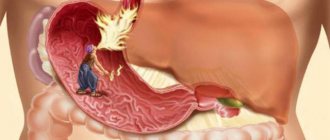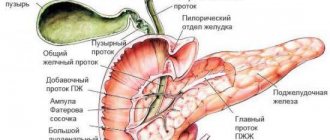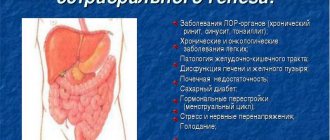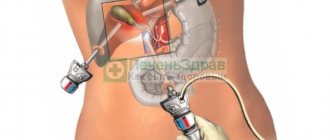Content
- Causes of bitterness in the mouth
- Bitterness in the mouth in healthy people
- Bitterness in the mouth due to illness
- What does the presence of bitterness in the mouth indicate?
- Bitterness that appears sporadically
- Constant bitterness in the mouth
- Bitterness in the mouth due to gastrointestinal diseases
- Diseases of the esophagus
- Stomach diseases
- Intestinal diseases
- Liver diseases
- Gallbladder diseases
- Oral diseases
- Endocrine diseases
- Parasitic diseases
- Bitterness in the mouth in mental disorders
- Bitterness in the mouth in pregnant women
- Other causes of bitterness in the mouth
- Bitterness in the mouth of children
- Which doctor should I contact if I have a bitter taste in my mouth?
- Treatment of bitterness in the mouth with folk remedies
Treatment and drugs
Medication can temporarily relieve an unpleasant symptom. In the best case, the treatment will be completed.
In the worst case, you will have to resume taking the medications after some time or resort to examination to identify the causes of bitterness in the mouth.
Drugs that relieve symptoms:
- Sodium thiosulfate.
- Allohol.
- Holosas.
- Liobil.
- Odeston.
These medications must be prescribed by a doctor. Contact your therapist and ask them to recommend one of them. He will determine the dosage and tell you about the side effects.
If treatment does not help, you will have to return to the clinic and undergo examination.
Calendula tincture has a good effect. They drink it 3 times a day, a third of a glass. This is a folk remedy that eliminates problems of the digestive system.
A decoction of yarrow gives a similar effect. This herb is the best helper for various pathologies of the gastrointestinal tract. Bitter in taste, it copes with diseases better than tablets.
Important! Yarrow should not be taken during pregnancy or during menstruation in women, as it clots the blood, which will cause cycle disruption. The use of this herb is limited to two weeks, after which they take a break of at least a month.
In large quantities, yarrow is poisonous and can cause poisoning. Grass is not given to children under 14 years of age. The first dose at a young age should be carried out under the supervision of a doctor, reducing the dose.
Treatment of bitterness in the mouth can be carried out at home only if the symptom appears for the first time. Constant problems with this indicate a malfunction in the body.
Important! Any ailments and pains are a signal. Our body asks for help in order to preserve life and health.
Be attentive to your health, seek medical help in a timely manner, this is the key to longevity.
Useful video
Share this post
- Related Posts
- Effective vitamins for oral administration and for masks against hair loss, for hair growth and strengthening
- Cellulite patches Celluwin
- Types of enterocolitis: symptoms, treatment with folk remedies and drugs
- Instructions for use and composition of the anti-parasite product intoxic
- Why does a person yawn often: reasons
- Tinedol: cream for foot fungus: instructions for use and composition
Causes of bitterness in the mouth
The feeling of bitterness in the mouth most often indicates a dysfunction of the body, but in some cases bitterness also appears in healthy people.
Bitterness in the mouth in healthy people
The most harmless cause of bitterness in the mouth is a disorder in the functioning of taste buds, which is observed in adulthood. The number of olfactory and taste receptors gradually decreases with age, and the remaining taste buds lose their mass.
First of all, the perception of sweet and salty tastes is reduced, and the ability to perceive bitter and sour tastes remains for a longer time. Taste buds begin to atrophy in women at 40-50 years of age, and in men at 50-60 years of age. An age-related decrease in saliva production, which causes dry mouth, also contributes to the feeling of a bitter taste in the mouth in people of this age.
A bitter taste in the mouth also occurs:
- as an individual reaction to dental intervention (when filling a tooth or installing an implant);
- during pregnancy as a result of changes in hormonal levels and relaxation of the gastric valve;
- when taking certain medications (antibiotics, antihistamines, etc.);
- in case of poisoning with certain substances (mercury, lead, arsenic);
- as a result of prolonged smoking.
Bitterness in the mouth due to illness
Bitterness in the mouth can also be a consequence of diseases:
- oral cavity (gingivitis, stomatitis, glossitis);
- gastrointestinal tract (gastritis, duodenitis, duodenal ulcer, gastroesophageal reflux disease, functional gastric dyspepsia, intestinal dysbiosis, giardiasis);
- gallbladder and biliary tract (cholecystitis, cholelithiasis, bile duct dyskinesia);
- liver (hepatitis, cirrhosis);
- endocrine system (hypothyroidism, diabetes mellitus).
Bitterness in the mouth affects patients with anemia or people with high blood glucose levels.
How often and when does your mouth taste bitter?
Depending on exactly when bitterness develops on the tongue and in the mouth, certain assumptions are possible about what exactly causes the bitterness in the tongue.
Bitterness in the mouth in the morning
Most likely, the causes of bitterness in the mouth in the morning are associated with disruption of the liver and gallbladder. heartburn may also periodically bother you . Some people develop yellow saliva after sleep, as well as a yellow tongue. This is due to pathological changes due to which bile flows back into the esophagus. Only a doctor can determine exactly why bitterness appears in the mouth in the morning and prescribe the correct treatment. It is necessary to take into account those who often experience bitterness in the mouth in the morning, that this phenomenon may be associated with overeating the day before, taking antibiotics , or dental diseases.
During physical activity
If, when playing sports, a bitter taste appears in the mouth and the right side hurts, or if there is severe heaviness in this side, then it can be assumed that liver disease is developing. Why such symptoms recur constantly, you need to ask a specialist, since the causes of a bitter taste in the mouth during physical activity can be evidence of serious illnesses.
After every meal
A constant bitterness in the mouth after eating is felt if a person has a sick stomach, gallbladder, or duodenum. Also, the reasons for the appearance of such a feeling after eating may be associated with certain liver pathologies. A diagnostic study will help you find out why such an unpleasant sensation develops after eating.
Sometimes an acidic taste in the mouth after eating can also be bothersome. This is often associated with impaired pancreatic function, high acidity, and indigestion. But if you constantly feel acid in your mouth after eating, it is important to get tested and undergo an examination.
Constant bitterness in the mouth
If this occurs constantly, then the causes of a bitter taste in the mouth may be associated with oncological processes in the gastrointestinal tract, cholecystitis , and cholelithiasis . Sometimes the answer to the question of why this symptom develops is a mental or endocrine illness.
Short-term bitterness in the mouth
Unpleasant sensations in the tongue and mouth can occur if a person is experiencing severe stress . Also, a strange bitter taste is possible after using certain medications, in particular those that directly affect the digestive tract and liver.
Sometimes there is a bitter taste in the mouth even after removal of the gallbladder. In this case, people who have undergone cholecystectomy need to pay special attention to their health, since even after this operation problems with the liver may occur.
What does the presence of bitterness in the mouth indicate?
A bitter taste in the mouth may appear at certain times of the day or in connection with food intake, disappear spontaneously, or persist for a long period of time.
To determine the cause of the bitter taste, you need to consider:
- frequency of bitterness;
- time of day at which the taste appears;
- connection between the feeling of bitterness in the mouth and food intake;
- connection between the appearance of taste and physical activity;
- connection between the appearance of a bitter taste and taking medications or undergoing dental procedures;
- the presence of additional symptoms (nausea, heartburn, etc.);
- general condition of the body;
- presence of bad habits.
Bitterness that appears sporadically
A bitter taste in the mouth in the morning may be a sign of liver or gallbladder disease.
If bitterness appears:
- after any meal, one may suspect the presence of diseases of the stomach, duodenum, gall bladder and sometimes liver pathology;
- during physical activity and is combined with a feeling of heaviness in the right side, liver disease may be present;
- only after eating fatty, heavy foods or overeating, diseases of the liver, gall bladder and its ducts are possible;
- after visiting the dentist and combined with a feeling of discomfort in the gum area, inflammatory diseases of the oral cavity or an allergic reaction to the material used by the dentist are likely.
If bitterness in the mouth is combined with heartburn, the patient may be suspected of gastroesophageal reflux disease.
A short-term feeling of bitterness can occur during stressful situations and the use of medications that affect the gastrointestinal tract and liver.
Constant bitterness in the mouth
Constant bitterness in the mouth may be a sign of:
- oncological disease of the gastrointestinal tract;
- cholelithiasis (cholelithiasis);
- cholecystitis;
- endocrine diseases;
- dysgeusia (a taste disorder that can occur not only with diseases of the oral cavity and gastrointestinal tract, but also with mental disorders and pregnancy).
Coated tongue with bitterness in the mouth
A yellow coating on the tongue, accompanied by a bitter taste in the mouth, may be a sign of bile duct disease, inflammatory processes in the liver, exacerbation of cholecystitis, gastritis, or peptic ulcer. White plaque on the tongue and bitterness in the mouth can appear during dental diseases or after dental treatment as a result of an allergic reaction to prosthetic materials or medications, as well as a sign of a violation of the microflora of the oral cavity.
Pay attention to the surface of your tongue - its appearance can provide information about the state of the body. In Ayurveda, based on different zones of the tongue, conclusions can be drawn about the health of different human organs and systems. Thus, the root of the tongue, according to Ayurvedic teaching, corresponds to the intestines, its upper third reflects the state of the cardiovascular system and liver, and the middle shows how healthy the pancreas is.
What does plaque on the tongue look like in pathologies of internal organs?
- White plaque that can be easily cleaned off with a toothbrush, the tongue underneath is light pink, sensitivity is normal - the diet contains a lot of sweet foods, which promote the growth of bacteria. However, the overall condition of the body is satisfactory.
- A dense layer of gray-white plaque that cannot be cleaned off, a feeling of bitterness in the mouth and an unpleasant odor, while the tip of the tongue and its sides are clean - heartburn, peptic ulcer, gastritis, dyspeptic disorders.
- White plaque with red spots or “geographical” tongue - in areas of red spots there is no epithelium, and the taste buds are deformed, a person is bothered by a feeling of dryness and burning in the mouth, and impaired taste perception. This may be a sign of serious diseases of the internal organs, a weakened immune system, or a hereditary disorder.
- A thick white coating is difficult to clean off, exposing the wound surface - thrush or fungal infection, microflora disturbances due to neglect of hygiene rules or weakened immunity.
- A dense layer of white or grayish plaque lies at the base of the tongue, cannot be cleaned off, there may be a bitter taste in the mouth, an unpleasant odor - a sign of a peptic ulcer or the accumulation of toxins in the intestines.
- A spotted plaque of white or yellow color, through which enlarged taste buds are visible, is a sign of chronic gastritis. Associated symptoms include bitterness in the mouth, heaviness in the stomach, bloating, and belching.
- Yellow plaque, possibly a greenish tint, a feeling of bitterness in the mouth, which intensifies after eating fatty foods - pathologies of the bile duct, gallbladder or inflammatory processes in the liver, requiring immediate consultation with a doctor.
- Brown plaque localized at the root of the tongue is often found in smokers due to staining of the epithelium with tars; it can also occur with iron deficiency or severe intestinal intoxication.
- With anemia, there may be no plaque on the tongue, or it may have a very pale tint.
On the topic: all types of plaque on the tongue - what does each of them mean?
Bitterness in the mouth due to gastrointestinal diseases
A feeling of bitterness in the mouth is characteristic of diseases of the esophagus, stomach and intestines.
Diseases of the esophagus
A feeling of bitterness is characteristic of gastroesophageal reflux disease (GERD), a chronic relapsing disease that is caused by regular spontaneous reflux of gastric or duodenal contents into the esophagus.
Spontaneous reflux of stomach contents into the esophagus, which occurs occasionally after eating, may be a variant of the norm, but in this case no unpleasant subjective sensations arise. Repeated reflux causes inflammation and damage to the esophageal mucosa and is accompanied by extra-esophageal symptoms. GERD is characterized by heartburn and sour or bitter belching that occurs after eating, bending forward or lying down, as well as rapid satiety, nausea, vomiting and bloating.
Stomach diseases
Bitterness in the mouth can occur when:
- Gastric dyspepsia is a disorder of the gastrointestinal tract, which is accompanied by difficult digestion. Symptoms of dyspepsia appear when the normal movement of food in the stomach is disrupted, with an increase in the production of gastric juice and increased sensitivity of the gastric mucosa, which can be caused by disturbances in the functioning of the nervous system.
- Gastritis is an inflammatory or inflammatory-dystrophic change in the gastric mucosa. Acute inflammation causes a one-time exposure to strong irritants on the gastric mucosa. Chronic gastritis is manifested by digestive disorders (heaviness and a feeling of pressure in the epigastric region after eating, belching, nausea, bitter taste in the mouth, possibly a burning sensation in the epigastric region and heartburn).
- Gastric ulcer is a local defect of the gastric mucosa, which develops under the influence of hydrochloric acid, bile and pepsin. It can be acute or chronic, accompanied by pain in the epigastric region. The pain is characterized by rhythm (the appearance of pain is associated with food intake), periodicity (painful attacks alternate with periods of absence of pain) and seasonality. Symptoms depend on the location of the ulcer - bitterness in the mouth is present in ulcers of the upper third of the stomach, accompanied by belching, heartburn, nausea, vomiting and salivation.
Intestinal diseases
A bitter taste in the mouth is characteristic of:
- Colitis is an inflammatory disease of the large intestine. The acute form of the disease is characterized by a constant urge to defecate, rumbling and bloating, profuse diarrhea (blood and mucus may be present), severe abdominal pain. Chronic colitis is accompanied by a feeling of fullness and heaviness in the abdominal cavity, cramping pain (colic) combined with the urge to defecate. The chronic form of the disease leads to hypovitaminosis, weight loss and loss of strength.
- Enteritis is an inflammatory disease of the small intestine. The acute form of the disease is characterized by sudden abdominal pain, fever, vomiting and diarrhea are often present, and symptoms of general intoxication of the body, dehydration, convulsions and cardiovascular disorders may be observed. Chronic enteritis is manifested by rumbling in the intestines, moderate pain in the umbilical region, nausea, weakness, and a tendency to diarrhea.
- Duodenitis is inflammation of the duodenum. The chronic form of the disease is accompanied by vomiting, heartburn, a feeling of bitterness in the mouth, bitter belching, heaviness and a feeling of fullness in the epigastric region. The pain can be felt in the right hypochondrium and right subscapular region (cholecystitis-like variant), localized in the upper parts of the epigastric region (gastritis-like variant) or have a girdling character (pancreatitis-like variant).
- Duodenal ulcers are a chronic disease in which local defects occur in the intestinal mucosa. The disease manifests itself as hunger pain and night pain (localized in the epigastric region on the left, but can also be diffuse), heartburn, sour belching, and possible vomiting. There is a bitterness in the mouth after eating.
Liver diseases
Bitterness in the mouth and pain in the right side appear with liver diseases. The combination of these signs may be a manifestation of:
- Hepatitis A. The disease is characterized by nausea, loss of appetite, weakness, and a dull pain is felt under the right hypochondrium. All types of hepatitis are accompanied by increased fatigue, belching, heartburn, nausea and vomiting, and the appearance of bitterness in the mouth.
- Liver cirrhosis is a disease in which the parenchymal tissue of the liver is replaced by fibrous connective tissue. In addition to pain in the right hypochondrium, there is weakness, sleep disturbances, increased body temperature, joint pain, dyspeptic disorders, dryness and bitterness in the oral cavity.
Causes
The main causes of bitterness in the mouth in women:
| Cause | Associated symptom | Treatment |
| Abuse of fatty foods | Abdominal pain after eating, nausea, feeling of fullness | Taking medications to improve stomach function, activated charcoal, enema |
| Pregnancy | Morning sickness, drowsiness, dizziness, frequent mood swings, interrupted menstrual cycle | Pregnancy provokes changes in the functioning of the whole body; you should consult a doctor about bitterness in the mouth |
| Taking antibiotics, hormonal drugs, and other medications | Loss of appetite, weakness | If there are no serious concerns for life and health, and the symptom is listed as a side effect, there is no cause for concern |
| Disorders of the gallbladder and intestines | Abdominal pain, nausea, heartburn | Treatment is carried out under the supervision of a doctor, after an appropriate medical examination |
| Previous surgery, serious illness | A lot of other symptoms characteristic of similar situations | Recovery under medical supervision |
| Liver disease | Yellow complexion, pain in the right side, nausea | Medicines and diet prescribed by the doctor based on the examination results |
| Smoking | Possibly without other symptoms | Gradual cessation of smoking |
| Diabetes | Bitter and sweet taste in the mouth, hair loss, thirst, hunger, weakness, blurred vision | Treatment depends on the stage of the disease and is prescribed by the attending physician. |
If you find yourself with a number of symptoms that fit one category or another, consult a specialist.
The examination will help avoid further development of serious diseases:
- Pancreatitis.
- Pancreas cancer.
- Gastritis.
- Poisoning.
- Diabetes.
You should especially carefully monitor your health during pregnancy. In this situation, a woman is responsible not only for herself, but also for her child.
A malfunction of the body can have consequences both for her health and for the life and health of the baby. A simple examination will help identify and eliminate the cause of this symptom.
Gallbladder diseases
Bitterness in the mouth and a yellow tongue indicate diseases of the gallbladder and its ducts. If you have these symptoms, you can assume the presence of:
- Cholecystitis is an inflammation of the gallbladder that develops as a result of a violation of the outflow of bile in the presence of microflora in the gallbladder. The acute form of the disease is accompanied by severe pain, nausea, vomiting, bitter taste, headache, tachycardia and general intoxication of the body. Bitterness in the mouth, nausea and dull pain under the ribs on the right after eating are characteristic of the chronic form of the disease.
- Cholelithiasis (cholelithiasis), which is characterized by the formation of stones in the cavity of the gallbladder or in the biliary tract due to stagnation of bile. The disease is accompanied by attacks of colic under the right rib in combination with nausea, vomiting and intoxication of the body. Bitterness in the mouth is characteristic of the dyspeptic form of the disease (appears as a result of the reflux of bile from the duodenum into the stomach, and during belching into the oral cavity).
- Cholangitis is a chronic or acute inflammation of the bile ducts. The acute form is accompanied by pain in the right rib area, increased body temperature, sweating, chills, weakness and intoxication of the body. The chronic form is manifested by low-grade fever, discomfort and a feeling of fullness in the epigastrium, dull, mild pain under the right rib and increased fatigue.
- Dyskinesia of the bile ducts. Occurs in the absence of organic pathology; it can be hyperkinetic (excessive contractions) and hypokinetic (insufficient contractions). In the hyperkinetic form, there is a cramping, short-term pain under the right rib; in the hypokinetic form, the pain is long-lasting, dull and aching. Painful sensations provoke errors in nutrition; the disease is characterized by bitterness in the mouth after sleep.
Oral diseases
Dryness and bitterness in the mouth can occur with a taste disorder that accompanies diseases of the oral cavity:
- Gingivitis is an inflammation of the gums that is not accompanied by a violation of the integrity of the periodontal junction. The disease is accompanied by unpleasant sensations in the gum area, itching, bad breath, distortion of taste, and bleeding gums while eating or brushing teeth. In the acute course of the disease, pain may occur when eating under the influence of chemical and mechanical stimuli.
- Stomatitis is a lesion of the oral mucosa that occurs under the influence of local (poor oral hygiene) and general (gastrointestinal diseases, helminthic infestation) factors. Accompanied by swelling and redness of the oral mucosa, increased salivation, pain, possible appearance of white or yellow plaque, bleeding gums, taste disturbances and bad breath.
- Glossitis is an inflammation of the tongue that occurs due to injury, under the influence of pathogenic microorganisms or as a result of other diseases. Accompanied by swelling of the tongue, a change in its color, and possible plaque. An unpleasant aftertaste occurs, and there are difficulties in chewing and speaking.
Endocrine diseases
Constant bitterness in the mouth can be a sign of endocrine diseases:
- Hypothyroidism is a syndrome that is caused by a long-term, persistent lack of thyroid hormones. Symptoms are often scanty and nonspecific; lethargy, decreased performance, drowsiness, memory loss, dry skin, swelling of the extremities and other symptoms are observed. The severity of symptoms depends on the type of disease and the degree of hormonal deficiency.
- Diabetes mellitus is a group of chronic endocrine diseases that are associated with impaired glucose absorption and a persistent increase in blood glucose levels. The disease is accompanied by increased urine production, constant unquenchable thirst, a constant feeling of hunger, and with type 1 diabetes, weight loss is observed. There is itching and inflammatory skin diseases, dry mouth, muscle weakness, and blurred vision.
Parasitic diseases
Nausea and bitterness in the mouth can be a sign of parasitic diseases:
- Echinococcosis is a helminthiasis that is caused by the larval stage of the tapeworm Echinococcus. Cysts of the parasite, which are localized in the right lobe of the liver, as they grow, compress the intrahepatic bile ducts, which causes pain in the right hypochondrium and the appearance of bitterness in the mouth. When Echinococcus parasitizes the bile ducts, symptoms of cholecystitis and cholangitis are observed. Damage to other organs by echinococcus is not accompanied by a feeling of bitterness in the mouth.
- Giardiasis is a lesion of the small intestine by single-celled (protozoan) flagellated organisms. The disease is accompanied by pain in the upper or middle abdomen, bloating, nausea, alternating constipation and diarrhea, biliary dyskinesia, bitter taste, atopic dermatitis, general weakness, irritability, sleep disturbance, dizziness and increased fatigue.
- Ascariasis is a type of helminthiasis caused by roundworms called roundworms. The migration of larvae causes toxic-allergic reactions (cough, itching in the nose, skin rashes), and during the intestinal phase bitterness in the mouth, nausea, abdominal pain, increased salivation, loss of appetite, itching in the anal area, lethargy, drowsiness are observed . When roundworms penetrate the biliary tract, purulent cholangitis, liver abscess, and obstructive jaundice can develop. When parasites penetrate the pancreatic ducts, acute pancreatitis develops, and a large accumulation of helminths in the intestine causes dynamic intestinal obstruction.
Bitterness in the mouth can also be caused by other types of helminths that parasitize the human small intestine.
Bitterness in the mouth in mental disorders
Bitterness in the mouth can be a consequence of dysgeusia, a taste disorder that occurs with:
- Traumatic brain injuries, brain tumors, stroke. Accompanied by long-term disturbances in taste, headache, memory, vision, orientation and speech disorders.
- Epilepsy is a chronic disease that causes seizures, loss of consciousness, and personality changes. Bitterness in the mouth is present in patients with temporal lobe epilepsy during the period of olfactory aura.
- Schizophrenia. It is a group of mental disorders in which there is a breakdown of emotional reactions and thinking processes. The feeling of bitterness in the mouth with this disease is a consequence of taste hallucinations (usually combined with olfactory hallucinations).
- Depression that mimics dental disease. Manifestations of depression appear secondary to the patient’s complaints (burning, numbness in the mouth, often complaints of pain in the tongue), but a comprehensive examination does not reveal objective changes.
- Traumatic lesions of the facial nerve, chorda tympani or lingual nerve.
A prolonged feeling of bitterness in the tongue may be an early sign of amyotrophic lateral sclerosis (Lou Gehrig's disease), a slowly progressive, incurable degenerative disease of the central nervous system that is accompanied by damage to both upper and lower motor neurons, causing paralysis and subsequent muscle atrophy.
Bitterness in the mouth in pregnant women
Carrying a child is accompanied by a radical restructuring of all processes in the female body, so a bitter taste does not always indicate the development of pathology. Bitterness in the mouth often appears at the initial stage of pregnancy and can be a consequence of:
- Changes in hormonal levels. The corpus luteum, and then the placenta, produces the hormone progesterone, which relaxes the muscles of the uterus and helps maintain pregnancy. At the same time, this hormone relaxes other smooth muscles of the body, including the valve separating the esophagus and stomach. When relaxed, this valve cannot fully prevent stomach acid from entering the esophagus, resulting in a bitter taste in the mouth.
- Slow digestion of food and impaired intestinal motility, which occurs under the influence of progesterone.
In late pregnancy, the enlargement of the uterus and the growth of the fetus leads to stagnation of bile in the body, which can also cause bitterness in the mouth of pregnant women.
A bitter taste in the mouth may be accompanied by belching and a burning sensation in the throat and chest area.
Bitter taste in mouth
The human body is designed in such a way as to promptly notify its owner of the slightest malfunction. Just as an increase in temperature indicates the beginning of an inflammatory process, bitterness in the mouth indicates a dysfunction of the biliary system.
. Based on this feature, it can be determined that there are problems in the activities of its constituent bodies.
In addition, diseases of the gastrointestinal tract can cause bitterness in the mouth.
Each disease is characterized by specific treatment methods, both with medications and folk remedies.
However, it is possible to achieve the maximum effect only by accurately determining what symptoms of disease the bitterness in the mouth is, and what specific disturbances in the body’s activity cause unpleasant sensations.
Many fans of noisy parties are familiar with the unpleasant sensations that arise the next day after a heavy feast with a lot of alcohol. In addition to the headache, you may experience a bitter taste in your mouth in the morning. This taste is due to excess bile secretion
and getting into the esophagus. This unpleasant sensation can occur immediately after eating or be permanent. Each case is caused by certain reasons, indicating a dysfunction of the internal organs.
Based on the time of presence of a bitter taste in the mouth and the accompanying symptoms, several categories of this ailment can be distinguished. Characteristic features and the most effective treatment methods require separate consideration. The causes of morning bitterness in the mouth or similar unpleasant sensations during and after eating can be many different factors.
Other causes of bitterness in the mouth
A bitter taste in the mouth can occur when:
- Taking medications (antibiotics that disrupt the natural intestinal microflora, antidepressants, choleretic drugs, antifungals and antihistamines). Some medicinal herbs (St. John's wort, etc.) provoke the appearance of a bitter taste.
- Eating large amounts of fatty and spicy foods, mushrooms, smoked meats, sweets, tomatoes and citrus fruits. Bitterness in the mouth can occur when overeating pine nuts, as well as excessive consumption of coffee or tea on an empty stomach.
- Having bad habits. Smoking or drinking alcohol on an empty stomach causes a bitter taste. Bitterness may also appear at the initial stage of quitting smoking.
- Stress, which can cause lack of appetite. When appetite is impaired, bile production is disrupted, which can lead to a bitter taste.
- Poisoning. A bitter taste may indicate metal poisoning (mercury, cadmium, lead, phosphorus), which causes a distortion of taste perception through a pathogenic effect on the central and peripheral nervous systems. Alcohol, arsenic, botulinum toxin, hydrocarbons, organophosphorus compounds and poisonous mushrooms have the same effect. In case of poisoning with many poisons, the functioning of the gastric sphincters is also disrupted (reflux occurs), the functions of the gallbladder and liver are disrupted, and when affected by nephrotoxic poisons, kidney failure occurs and bitter nitrogenous wastes are released through saliva. Gasoline fumes, toluene and other hydrocarbons can cause taste hallucinations.
- Infectious diseases (flu, etc.). In acute respiratory diseases, swelling of the mucous membranes in the mouth and nasal cavity occurs, which disrupts the functioning of the taste buds located in this area.
A bitter taste exclusively in the morning can occur due to sinusitis, throat diseases, or abuse of coffee, garlic or pepper.
How to get rid of the symptom?
Ways to remove bitterness in your mouth:
- thorough cleaning of the oral cavity;
- consumption of foods that stimulate active salivation;
- eliminating the root cause and treating diseases that cause bitterness in the mouth.
A quick way to get rid of bitterness in the mouth is with drugs that neutralize acidity: Rennie, Gaviscon.
If the problem becomes regular, then it is worth undergoing an examination: ultrasound of the abdominal cavity, endoscopy. Before visiting a specialist, you need to find out at what time the problem occurs, what is its intensity and duration. Based on the information provided, it will be easier for the doctor to determine what kind of disease it may be, the cause of which is bitterness in the mouth, and to prescribe procedures and comprehensive treatment.
Pregnant women need to know what to do if they experience bitterness in their mouth:
- maintain a diet;
- drink alkaline mineral water, such as Borjomi, in small sips.
Doctors also advise drinking a little milk if an unpleasant symptom appears.
With a constant aftertaste
If the taste of bitterness does not leave the patient, then this may be a signal of serious diseases developing in the body:
- endocrine disorders (diabetes, hyperthyroidism);
- cholelithiasis, cholecystitis;
- hepatitis;
- pancreas cancer
- neurological disorders.
You should avoid stress and do not delay visiting a specialist who will determine the causes of bitterness in the mouth and prescribe medications for treatment.
For strong bitterness
An obsessive, strong bitterness in the mouth that occurs after jogging, activity or exercise signals diseases of the gallbladder and liver. Another reason may be in the oral cavity and be explained by an allergy to the material of dentures.
In case of severe bitterness, which is constantly disturbing and there is no clear connection with any provoking factor, an urgent consultation with a specialist is necessary.
For dry mouth
If bitterness and dry mouth occur simultaneously and do not go away within a few days, then this is a symptom:
- atrophy of the salivary glands;
- diabetes mellitus;
- food poisoning.
This is not a complete list of diseases; the causes of bitterness in the mouth and dryness should be determined by a gastroenterologist. To improve the condition, the patient must monitor the level of humidity in the room, adhere to a diet, and drink at least two liters of clean water per day.
If there is a white coating on the tongue
A white coating on the tongue is normal if it is not accompanied by additional symptoms: unpleasant odor, dryness, etc. If bitterness in the mouth and a white coating on the tongue appear simultaneously, this may be a symptom:
- acute form of gastritis, cholecystitis;
- allergies to medications or dental materials;
- gum diseases.
If the tongue is covered white, the mouth is dry and bitter, then most likely it is gastritis.
Bitterness in the mouth in the morning
What causes bitterness in the mouth in the morning can be found out if you exclude:
- reflux disease;
- dental problems;
- gum disease;
- digestive problems;
- abuse of alcohol and spices;
- respiratory diseases.
If bitterness in your mouth appears immediately after waking up, this may be a consequence of evening overeating or fasting. If pain in the right hypochondrium and heaviness are added to the symptoms, then this may be a sign of cirrhosis or stenosis of the liver, hepatitis.
Bitter after eating
Evidence of malfunctions in the digestion mechanism of food is a bitter taste after eating. The reason lies not only in health, but also in the quality of food. If it tastes bitter after a heavy meal, then there is a problem with the liver or pancreas. The problem is that digestive diseases rarely affect just one organ. To find out why there is bitterness in your mouth, you should undergo a comprehensive examination.
The causes of simultaneous bitterness in the mouth and nausea are problems with the gastrointestinal tract. This means that bile is thrown into the esophagus and provokes unpleasant symptoms.
Severe bitterness in the mouth and nausea may indicate poisoning of the body.
Long-term use of antibiotics negatively affects the condition of the body. They destroy the microflora of the intestines and oral cavity. The solution to the problem is to take probiotics simultaneously with or after an antibacterial drug.
Causes of bitterness in the mouth after eating
Some foods may leave a bitter aftertaste, for example: chocolate, watermelon, tomatoes, citrus fruits.
Bitterness in the mouth of children
Bitterness in a child’s mouth is most often caused by:
- diseases of the oral cavity;
- food poisoning;
- parasitic diseases.
Among the chronic diseases that are accompanied by a bitter taste in the mouth, children most often experience:
- bile duct dyskinesia;
- gallbladder diseases (cholecystitis, cholecystocholangitis);
- diseases of the gastrointestinal tract (acute gastritis, duodenitis, enteritis);
- inflammatory hepatobiliary diseases (primary lesions can occur due to anatomical pathologies of the biliary tract or defects of the sphincters regulating the movement of bile; secondary dysfunctions cause lesions of the gastrointestinal tract).
Bitterness in the mouth of children can be caused by poisoning from low-quality dyes that were used in the manufacture of children's toys.
Which doctor should I contact if I have a bitter taste in my mouth?
If you experience frequent bitterness in your mouth, it is recommended to consult a therapist, who, after clarifying the accompanying symptoms, will refer you to a more specialized specialist.
If bitterness in the mouth is combined with:
- heartburn, belching, chest pain, a feeling of heaviness and fullness in the stomach, bloating, nausea and a white or gray coating on the tongue, you need to consult a gastroenterologist;
- white coating on the tongue, bad breath, increased salivation, discomfort in the gum area, bleeding gums, you need to consult a dentist;
- pain or a feeling of heaviness in the right hypochondrium after physical activity, yellow coating on the tongue, increased fatigue, it is recommended to consult a hepatologist;
- insatiable thirst, increased urine output, constant feeling of hunger, weakness, memory loss, swelling, you should consult an endocrinologist.
The appearance of a bitter taste in pregnant women requires consultation with an obstetrician-gynecologist.
If you are depressed, depressed, regularly in a bad mood, anxiety and burning sensation in the mouth in the absence of organic pathology, a consultation with a psychotherapist is required.
The treatment of parasitic diseases is carried out by a gastroenterologist or parasitologist-infectious disease specialist.
Bitterness in combination with vomiting, nausea, pain in the throat and esophagus can be a sign of heavy metal intoxication and therefore requires emergency medical attention.
Bitterness in the mouth, not associated with diseases of the digestive system
Bitterness can appear in diseases of the oral cavity. With any inflammatory process in the mouth: dystrophic diseases of the gums, inflammation of the periodontal tissues, with poorly selected metal or plastic crowns, dentures, with impaired innervation of the tongue, with stomatitis in adults and children - bitterness in the mouth may occur.
Hormonal disorders and diseases of the endocrine system, as a rule, also cause a feeling of bitterness. With hyperthyroidism, when the thyroid gland secretes an increased amount of secretion, and vice versa, with hypothyroidism, when it is not enough, there is also an increased release of adrenaline and norepinephrine. Which in turn influence spasms of the muscles of the biliary tract. This process leads to dyskinesia of the biliary tract, and as a consequence to the appearance of a bitter taste.
Such a phenomenon as a violation of the sense of taste - dysgeusia - appears in a person for some reason, and many tastes are perceived as unpleasant, and most often bitter.
Poisoning of the body with various heavy metals - copper, lead, mercury; with such intoxication, a bitter taste may occur.
After taking almost any antibiotic, antihistamines - allergy tablets, antifungal drugs in tablets, any medications that affect the liver, a bitter taste, heartburn or pain in the right hypochondrium appears as one of the possible side effects. Even the use of natural medicinal herbs or oils can provoke such a symptom, for example, St. John's wort, boron uterus, sea buckthorn oil, etc.
People who smoke a lot, as well as those who are chronically stressed or depressed, suffer from a variety of unpleasant taste sensations in the mouth.










